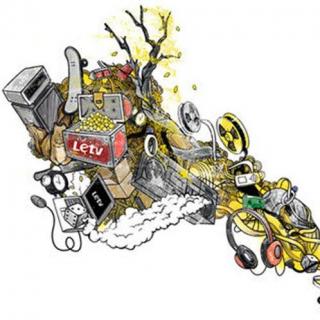
介绍:
LeTV has recently begun a dramatic change in business direction, away from its original highly profitable Internet TV service and toward smartphone and electric car production. At a February meeting, investors were invited to listen to billionaire owner Jia Yueting present his three-year plan for the shift.
The overhaul comes nearly a year after the government regulator for radio film and television, wary of access to pornography and piracy, ordered LeTV to change its content and stop selling Internet-linked televisions and set-top boxes that can stream online shows. LeTV then lost out when the regulator decided that only seven companies would receive licenses to provide online content for TVs.
Another bludgeon to its Shenzhen-listed share price came when an official close to a LeTV investor was charged with corruption at the same time that Jia left the country, stoking a rumor that he was also being targeted. The rumor and the clampdown caused the share price to promptly drop by over 25 percent.
In order to get round the media clampdown, LeTV is planning on a tie-up with an investor that holds a large stake in one of the seven license holders. However, it will be a costly move if it goes through, requiring it to hand over at least 2.4 billion yuan.
In its move to build a smartphone business, the company has released two models of its first one, called the Superphone, which it predicts will reach 3 million units by the end of the year, and 10 million units the next. Competition from well-established players like Xiaomi and Huawei is expected to be tough, but LeTV says it will also focus on selling apps and online content through the phones.
LeTV is still in the planning stages of its electric car business, but Jia says it is committed, investing 1 billion yuan in the project. True to its original roots, the company says it will be manufacturing cars that connect to the Internet.
For Caixin Online, this is Nikolai Blackie.
乐视CEO贾跃亭现在最着急的是如何找钱,他也正在这么做。不过他手里的牌和面对的牌局与大半年前已大相径庭,投资人的看法也发生了改变。
去年的这个时候,乐视正值巅峰,2013年5月推出的智能电视初露锋芒,这个至今广受称赞的战略转型帮助乐视从优酷、土豆的光环下走出来。借助高性价比的硬件,其首创的“平台+内容+应用+终端”商业逻辑迅速被市场认可,乐视成了颠覆传统家电行业和传统广电行业的一条鲶鱼。那时多的是投资人愿意与贾跃亭一起实现互联网电视梦想。
现在不一样了。首先改变的是政策环境。原本默不作声的广电总局从2014年7月开始针对互联网电视密集发动组合拳:禁止用户通过互联网电视直接上网,要求互联网电视的七大内容牌照方将视频类APP和浏览器全部下架,相关企业完成整改后才能重新运营。乐视被迫停售乐视盒子,并调整互联网电视发展策略。与此同时,一直被认为有特殊背景的乐视创始人贾跃亭滞留海外,市场传言四起。从2014年7月17日开始,乐视网(300104.SZ)连续跌停,之后几度停牌复牌,至最后停牌前一天即10月24日市值为281.88亿元,较2014年1月27日的峰值跌去三分之一。
等到2014年底贾跃亭回国,摆在他面前的是一个乱局。一方面,打擦边球的做法不能继续,整改仍未结束,互联网电视的牌照悬而未决,广电总局对互联网的严厉监管也未见松懈;另一方面,对手变了,在乐视率先掘金的互联网电视战场,各有所长的竞争对手成长起来了,它们包括来自牌照方的华数TV、芒果TV,来自运营商的中国电信、鹏博士以及最同构也最危险的小米。
乐视要怎么走?不缺想法的贾跃亭打出了手机、汽车两张牌。一位与乐视有过深入接触的投资人指出,不管是老的互联网电视故事,还是新的手机、汽车故事,贾跃亭都需要钱来支撑。
“要局部做活,你的每个独立的业务板块都要实现财务安全,公司整体就安全了。”这是一个资本市场资深人士给乐视的建议。
大家还在听

